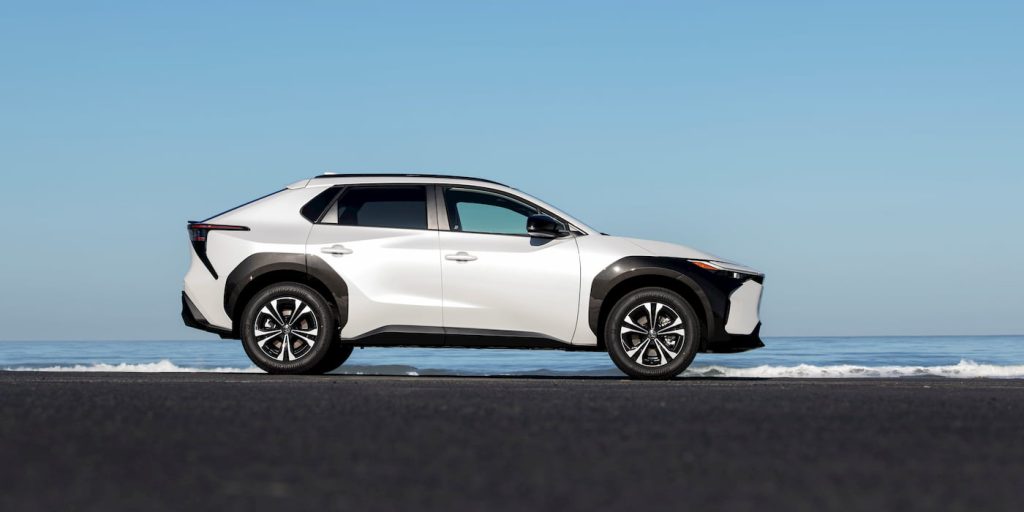
Toyota is at it again. The automaker’s Australian leader reiterated that Toyota would not be going all-electric despite the federal government’s recent initiatives to boost EV adoption, cut emissions from passenger vehicles, and improve the overall well-being of Australians.
Less than two weeks ago, Australia’s government introduced its new National Electric Vehicle Strategy, consisting of three main objectives.
- Increase the supply of affordable and accessible EVs.
- Establish the resources, systems, and infrastructure to enable rapid EV uptake.
- Encourage increased EV demand.
The government says despite Australian buyers’ demand for EVs, its lack of national policy has made them harder than they should be to access. EV sales accounted for only 3.8% of overall car sales last year.
With transportation in Australia on track to be the largest emitting sector by the end of the decade, the country is committed to becoming more competitive globally for EV supply.
New cars in Australia use 40% more fuel than in the EU and 20% more than in the US, making it urgent for government officials to adopt a Fuel Efficiency standard and accelerate its pace toward zero-emission electric vehicles.
Although Australia is planning to limit how much carbon emissions through its new strategy, as of right now, the country is next to Russia as one of the only advanced economies without a Fuel Efficiency Standard.
Australia’s new EV strategy includes discount legislation to enhance affordability, increased access to charging infrastructure, and battery recycling to promote adoption.
Despite Australia’s recent initiatives to increase EV adoption, one automaker is looking to derail the mission in the Land Down Under.

Toyota Australia leader speaks out against new EV strategy
According to the Australian newspaper, Canberra Times, Toyota’s sales boss in the country, Sean Hanley, continues to push for hybrid and fuel cell options.
Despite Hanley claiming he was “not against battery electric vehicle technology,” he says Toyota will lobby for a standard with a generous time frame that will cut pollution without cutting vehicle options. He added:
Through the (Federal Chamber of Automotive Industries), we’ve spoken to the government and I think we have represented the silent voices of hundreds of thousands of Australians consumers who use their cars for leisure, towing, and lots of other activities.
Meanwhile, Behyad Jafari, CEO of the Electric Vehicle Council, shut down these arguments, saying EVs have been proven in other countries and are already becoming popular in Australia with upgraded tech enabling longer range and power. Jafari added:
When we hear those arguments, what we need to pay close attention to is the economic interest of the car company.
As Australia’s largest automaker (and largest automaker globally), Jafari points out Toyota’s reluctance to go all in on EVs is already costing the automaker, saying:
Some businesses haven’t spent time developing electric vehicles and they don’t have a firm enough grasp on the issues.
Greenpeace campaigner Lindsay Soutar says Toyota’s Australians will not put up with Toyota’s call for weaker pollution standards or any delays, claiming:
Toyota has stalled on pure electric cars, opting to promote hybrid and fuel-cell technologies that will lock customers into paying for fossil fuels for decades to come. Pushing for petrol cars in 2023, in the middle of a climate and cost-of-living crisis, is laughable and Australians won’t be convinced.
Despite the comments from Hanley, Toyota is planning to launch its first EV in Australia, the bZ4X SUV, before the end of the year.
Electrek’s Take
For one, Hanley is blatantly wrong in suggesting EVs can’t be used for leisure, towing, and other activities. In fact, they are enabling more of these kinds of activities with more power and zero emissions.
The Australian government is saying Australians are ready to move to EVs – they just don’t have the supply needed. Perhaps if the most prominent automakers in the country accelerated EV production rather than fighting it, it would be a win-win for everyone.
As Jafari points out, Toyota is looking to protect its profits at this point. The automaker is already late to the EV party and wants more time to catch up before governments like Australia implement new laws to promote EV adoption and lower emissions in the transportation sector.
Australia, like the rest of the world, will not be convinced by Toyota’s lobbying. The auto industry is moving to a cleaner future, with or without Toyota.
Author: Peter Johnson
Source: Electrek



